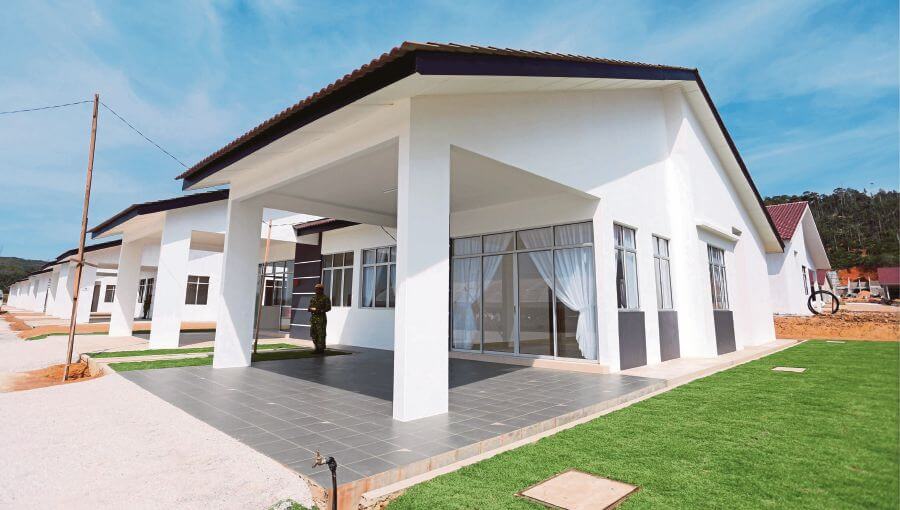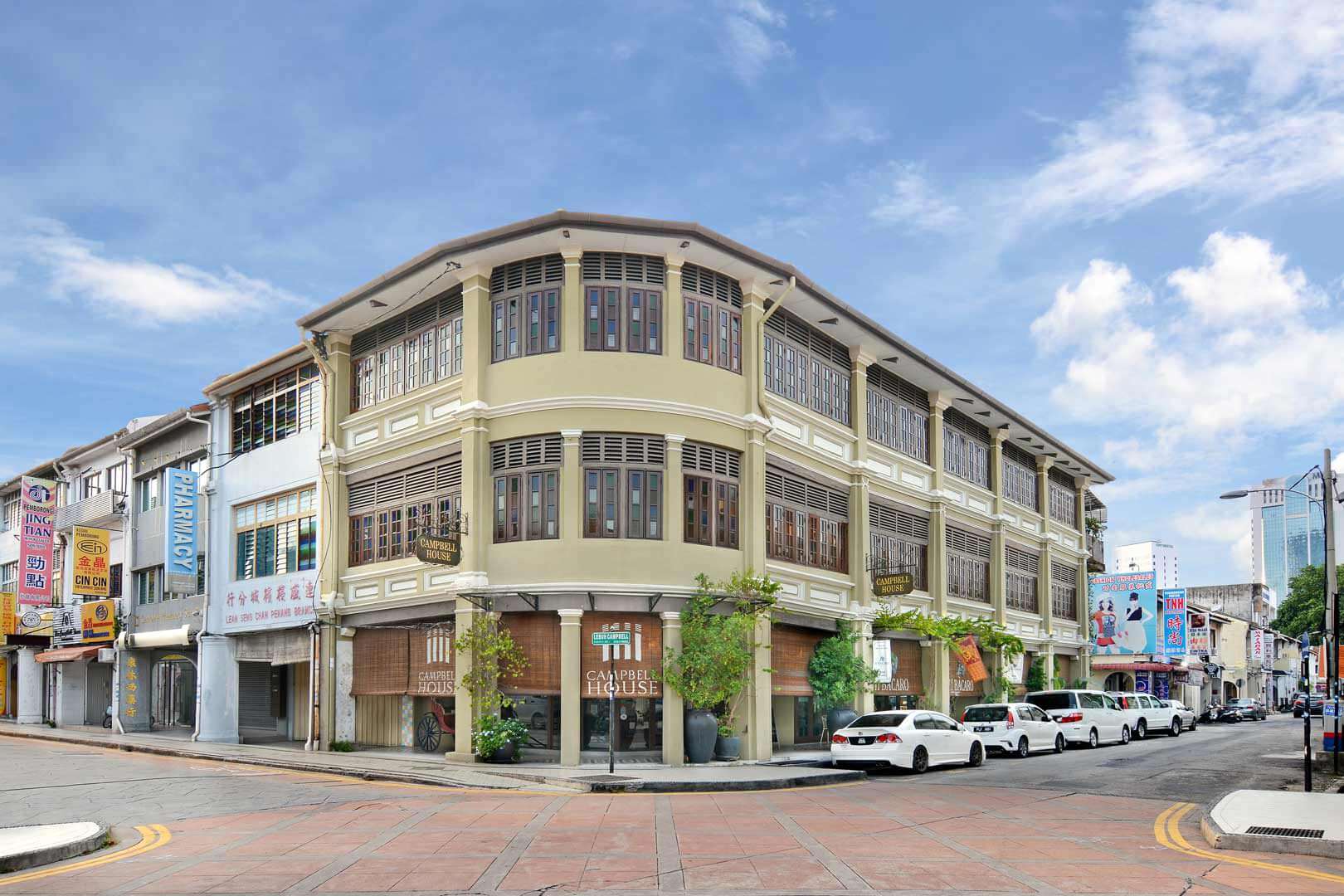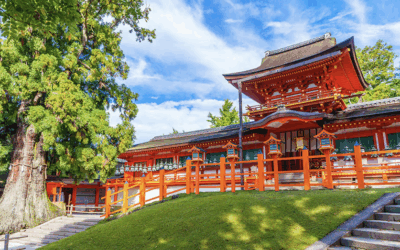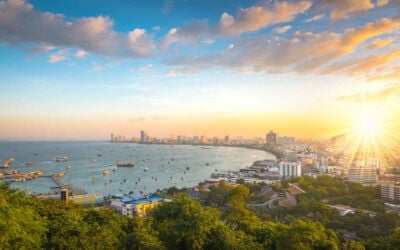Land is one of the rare investments you can physically touch and see with your own eyes.
Not everyone cares about this sort of thing. Yet some people do, and “physicality” remains an attribute that stocks and bonds don’t have.
Every so often, one of our clients wants to buy land in Asia. They’ll usually have their own reasons and won’t settle for anything else, insisting purely on physical land.
We almost always end up advising land-loving investors that they should buy property in Malaysia if that’s their goal.
Few countries in Asia allow foreign citizens to buy real estate – not even condos and apartment buildings.
China, India, and most other places in the region ban foreigners from owning any type of property.
A few countries, such as Thailand and the Philippines, may allow foreigners to buy freehold condos, but foreign ownership of an actual piece of land in Asia is truly rare.
Malaysia, however, is more accepting of foreigners buying land than most. The country is prime for land investors because of its simple property laws and general friendliness to foreign buyers.
Although it’s true that Malaysia doesn’t have the greatest economy compared to the rest of Asia, its positive attributes help make up for that.
Here are two main ways you can invest in Malaysia as a foreigner, specifically by buying either property or stocks.
Buying Land, Houses, and Condos in Malaysia
Property investment in Malaysia is worth considering as a foreign investor, mainly because non-citizens have nearly identical ownership rights as locals when it comes to owning land.
From a legal standpoint, this is a rare occurrence in the region; Malaysia’s neighboring countries all stand as testament to how difficult it is to buy land in Asia as a foreigner. Particularly on a freehold basis.
However, foreigners buying property in Malaysia still encounter restrictions, namely on buying low and medium-cost housing.
Properties priced under RM500,000 (~US$125,000) cannot be owned by foreigners at all.
Some Malaysian states such as Penang and Johor have an even higher minimum of RM1,000,000 (~US$250,000).
This minimum purchase policy is aimed at separating the high-end sector from the rest of Malaysia’s housing market.
It sort of does make sense. Otherwise, wealthy foreign buyers would drive Malaysia’s land prices up beyond a range where locals could afford it. Especially considering Malaysia is a small, fairly open country with China and India right next door.
Furthermore, some types of old heritage buildings are only open to local buyers. Ethnic Malays or “Bumiputera” also usually get a discount of up to 15% on all new purchases.
Our full guide to buying property in Malaysia also includes detailed information about such topics and countless others if you’re interested.

Foreign buyers can own houses, land, and bungalows in Malaysia, albeit with minor restrictions. Of course, that’s in addition to condo units.
Buying Stocks in Malaysia as a Foreigner
Malaysia also enjoys Southeast Asia’s third-biggest exchange in terms of market cap.
Unfortunately, getting a bank or brokerage account in Malaysia as a foreigner isn’t easy at all. You must be a Malaysian resident before any bank will let you open an account.
There are still other options. Brokerage firms in Asia will often let you trade on all equity exchanges throughout the region. You aren’t just limited to buying stocks in the country your broker is in.
Are you not living in Asia? Then, your first choice is to remotely open a bank account in a place like Hong Kong through the mail.
The second one is trading stocks in Malaysia through a brokerage based in your home country.
However, we don’t suggest the second option. Brokerage firms in the US and Europe charge high commissions rates for buying and selling stocks in Asia.
Few stock brokerages outside the Asian continent support trading in Malaysia. In the rare case they do, you’ll notably reduce fees by getting a local account.
Should You Invest in Malaysia?
Asia has far better options than Malaysia if you’re primarily seeking returns.
Malaysia’s economy has done rather poorly over the past several years. Places like Cambodia and the Philippines are growing faster and enjoy greater long-term potential.
With that said, buying land in Malaysia is practically the only option in Southeast Asia for foreigners to own houses, villas, and mansions on the same terms as a local citizen.
The Malaysia My Second Home (MM2H) program, a longstanding government initiative, even gives investors a renewable 10-year multiple-entry visa. You have other residence options including the Malaysian Premium Visa Programme (PVIP) as well.
If you’re considering property investment in Malaysia, including buying houses and land, then it’s also worth applying to either of these program.
Foreigners who live in Malaysia under the MM2H visa program can apply for visas for their family members, including their parents, and bring their furniture and even a live-in maid to Malaysia from another country completely free of tax.
Buying property in a foreign country usually doesn’t give you the right to live there full time. Thus Malaysia’s numerous residence by investment programs add to the appeal of buying any type of property here, landed or otherwise.
In short, consider Malaysia if you want to own land in Southeast Asia. But if you’re seeking profit or high rental yields, then you’ll want to invest elsewhere.
FAQs: Investing in Malaysia
Can Foreigners Own Land in Malaysia?
Yes, Malaysia is one of the few countries in Southeast Asia where foreigners can own land, houses and other types of property on a freehold basis. This makes Malaysia the easiest place in the region for foreign property ownership.
However, there are still some restrictions. Foreigners cannot buy properties priced under RM500,000 (~US$125,000), with the minimum threshold even higher at RM1,000,000 (~US$250,000) in states like Penang and Johor.
Foreigners also cannot own land designated as Bumiputra-only for ethnic Malays. But overall, Malaysia's property market is far more open to foreign buyers compared to its neighbors.
How Much Does Property in Malaysia Cost?
Property prices in Malaysia vary depending on location, property type, and other factors. In general, foreigners face a minimum purchase price which differs by state - from RM400,000 (~US$100,000) in Sarawak to as high as RM2,000,000 (~US$500,000) on Penang island.
Within the allowed price ranges, foreigners can find various options like condos, landed houses, townhomes and villas. For example, a typical condo in Kuala Lumpur might cost around RM500,000-1,000,000 (about US$125,000-250,000).
Real estate prices in Malaysia are generally lower than Singapore or Hong Kong but higher than emerging markets like Cambodia and the Philippines.
Can Foreigners Trade Malaysian Stocks?
Yes, foreigners can buy stocks listed on the Malaysian stock exchange, which is Southeast Asia's third-largest by market cap. However, opening a local brokerage account as a non-resident foreigner is very difficult.
The easier options are to either 1) open an account with an international broker in Singapore or Hong Kong that offers access to the Malaysian market, or 2) use an online broker based in your home country, although fees will likely be much higher.
So while it's possible to trade Malaysian stocks as a foreigner, the account opening process is less straightforward compared to the property market.
How Many Stocks Are Listed in Malaysia?
As of 2024, there are over 900 companies listed on Bursa Malaysia, the country's stock exchange. This includes a mix of large domestic firms and international companies that have listed in Malaysia to access the Southeast Asian market.
The exchange has a total market capitalization of around US$400 billion, making it the third-largest in Southeast Asia after Singapore and Thailand. Key sectors include banking, palm oil, electronics, and infrastructure.
While not as large or diverse as the exchanges in Hong Kong or Tokyo, Bursa Malaysia still offers a wide range of options for stock investors interested in the region.







